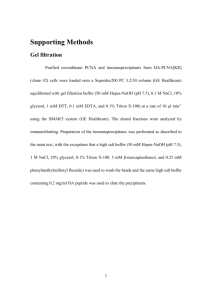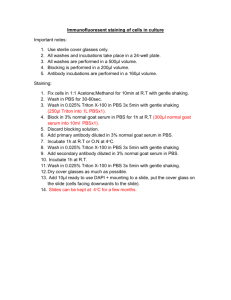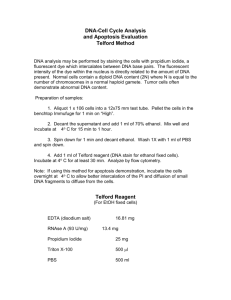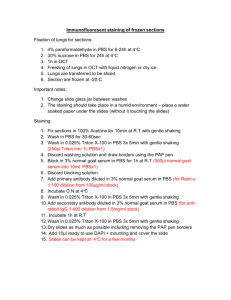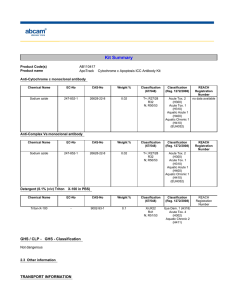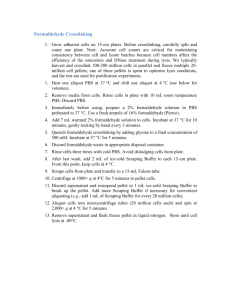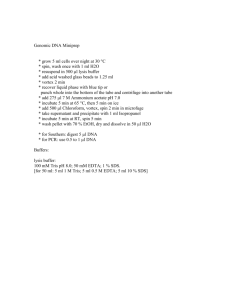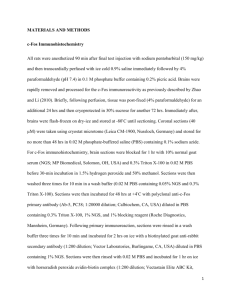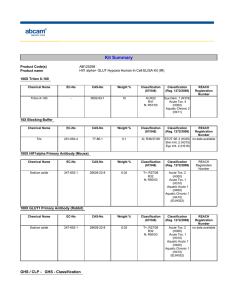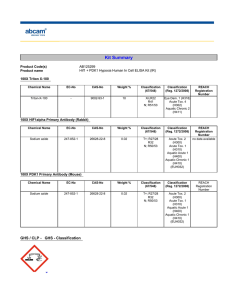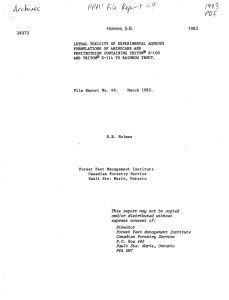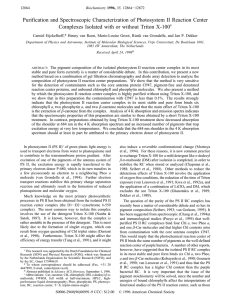Red blood cell lysis protocol cytometry.
advertisement
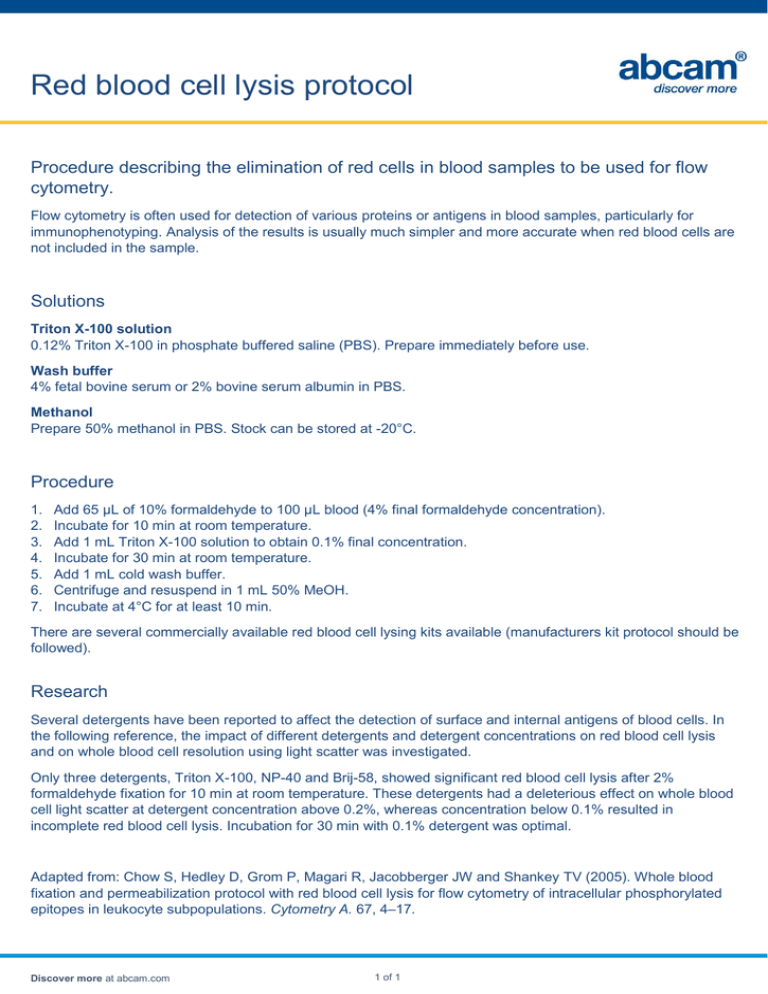
Red blood cell lysis protocol Procedure describing the elimination of red cells in blood samples to be used for flow cytometry. Flow cytometry is often used for detection of various proteins or antigens in blood samples, particularly for immunophenotyping. Analysis of the results is usually much simpler and more accurate when red blood cells are not included in the sample. Solutions Triton X-100 solution 0.12% Triton X-100 in phosphate buffered saline (PBS). Prepare immediately before use. Wash buffer 4% fetal bovine serum or 2% bovine serum albumin in PBS. Methanol Prepare 50% methanol in PBS. Stock can be stored at -20°C. Procedure 1. 2. 3. 4. 5. 6. 7. Add 65 µL of 10% formaldehyde to 100 µL blood (4% final formaldehyde concentration). Incubate for 10 min at room temperature. Add 1 mL Triton X-100 solution to obtain 0.1% final concentration. Incubate for 30 min at room temperature. Add 1 mL cold wash buffer. Centrifuge and resuspend in 1 mL 50% MeOH. Incubate at 4°C for at least 10 min. There are several commercially available red blood cell lysing kits available (manufacturers kit protocol should be followed). Research Several detergents have been reported to affect the detection of surface and internal antigens of blood cells. In the following reference, the impact of different detergents and detergent concentrations on red blood cell lysis and on whole blood cell resolution using light scatter was investigated. Only three detergents, Triton X-100, NP-40 and Brij-58, showed significant red blood cell lysis after 2% formaldehyde fixation for 10 min at room temperature. These detergents had a deleterious effect on whole blood cell light scatter at detergent concentration above 0.2%, whereas concentration below 0.1% resulted in incomplete red blood cell lysis. Incubation for 30 min with 0.1% detergent was optimal. Adapted from: Chow S, Hedley D, Grom P, Magari R, Jacobberger JW and Shankey TV (2005). Whole blood fixation and permeabilization protocol with red blood cell lysis for flow cytometry of intracellular phosphorylated epitopes in leukocyte subpopulations. Cytometry A. 67, 4–17. Discover more at abcam.com 1 of 1
